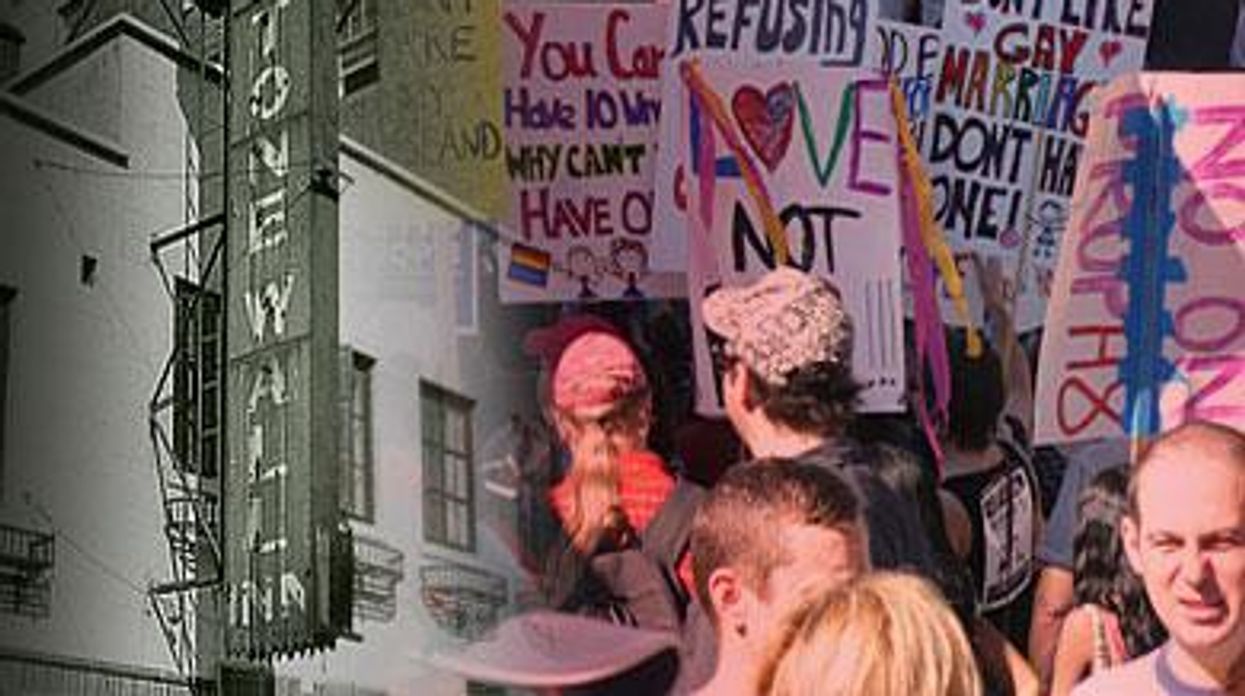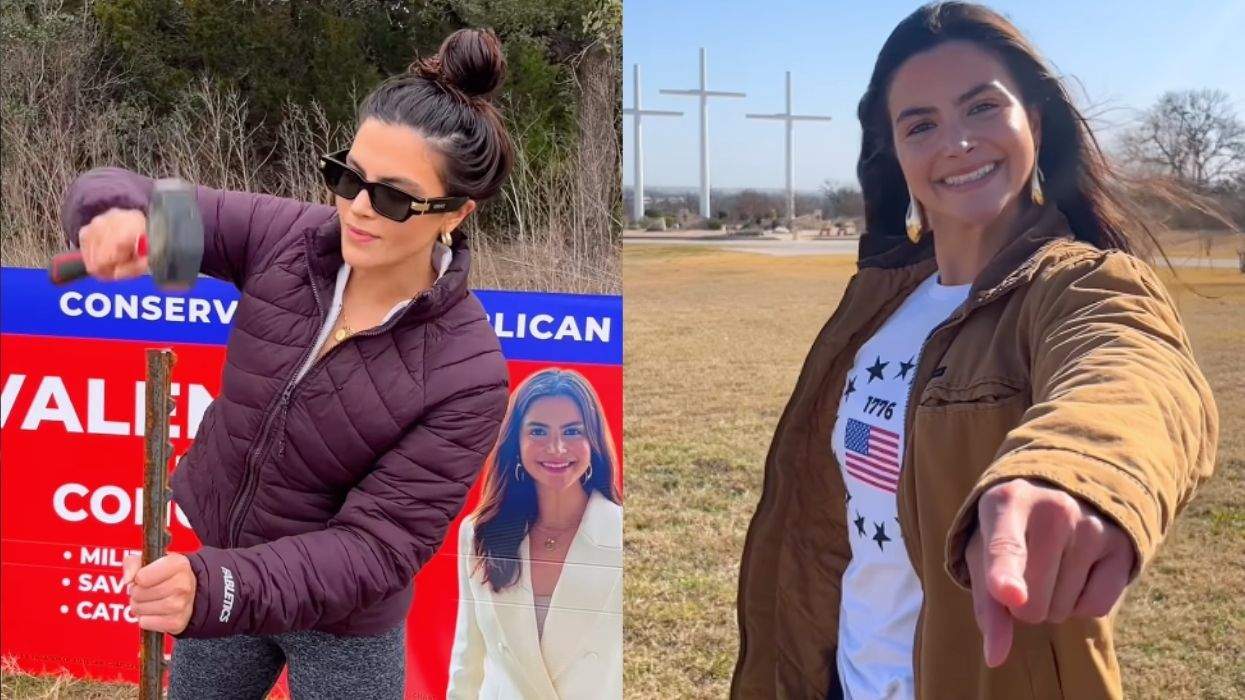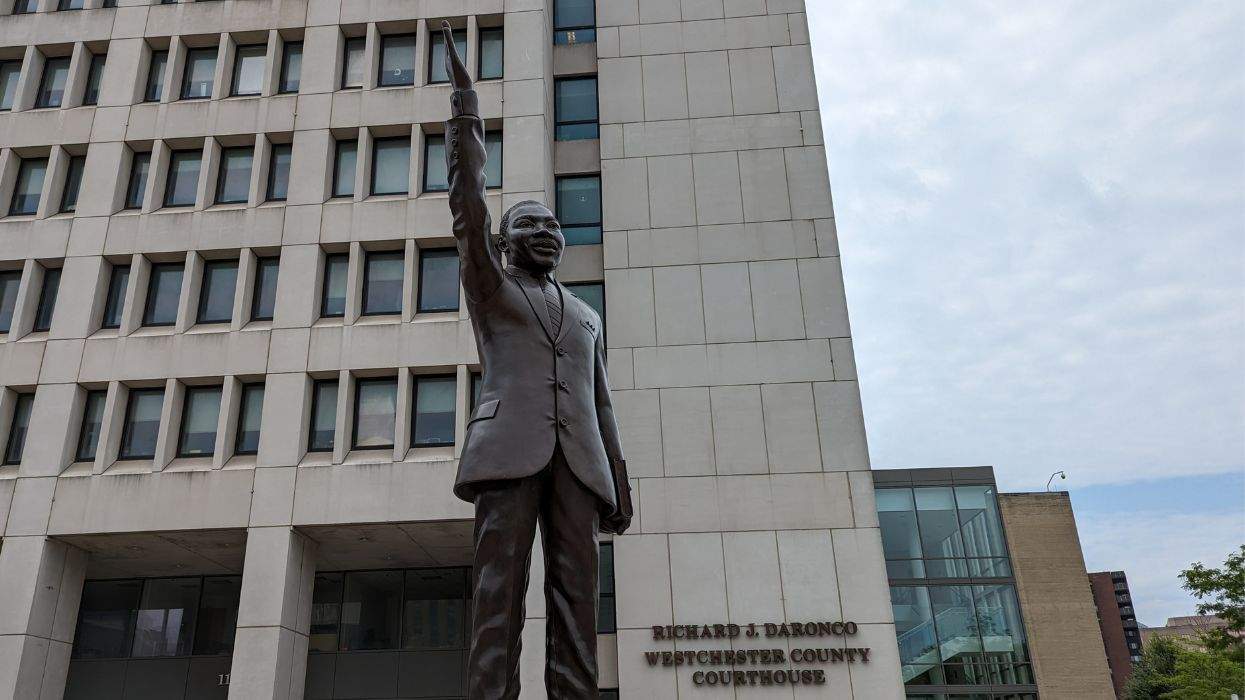The temptation exists in our culture to relate current events to famous past historical moments via some cliched shorthand. Every scandal is a something-gate. Every economic downturn is a potential Great Depression. Every boy band is an heir to the Beatles. Every trend du jour is the new black.
And now, in this digital era, every new version of something that seems to have happened before in a different fashion is a 2.0. You know, like the much-hyped, overly simplistic and historically inaccurate effort to brand the protests and outrage that followed the illegalization of same-sex marriage via California's Proposition 8 as Stonewall 2.0.
Yet, this is not Stonewall 2.0, at least not yet. And it insults the broad strokes of gay history since those 1969 riots in Greenwich Village to say so.
At first, I didn't react much to this branding, but in recent weeks the chatter has become unremitting and probably irreversible. Journalist Rex Wockner takes credit for coining it -- and certainly he shoved it into the gay intelligentsia's consciousness, where it has metastasized. In actuality, though, Long Beach, Calif., Honda service manager John Pill registered Stonewall2.com on November 6, several days before Wockner's first public use of the term on November 11.
Either way, it began bubbling up with Andrew Sullivan's November 18 blog post, hit the Huffington Post by December 5, and was codified on December 10 by the paper of record, The New York Times, when one article about the unrest led with the sentence: "They're calling it Stonewall 2.0."
Yes, they are. And that's a shame. It's also kind of amazing that we're taking this sort of facile view of the history of the gay movement at the very same time as the tale of Harvey Milk is being resurrected and mainstreamed in Gus Van Sant's movie. That in and of itself should be reminding us that we've had these moments before, that other pivotal events have energized, stung, and propelled gays and lesbians into new fields of action.
To be fair to Wockner, he offered more than one option in the blog post that sparked this branding. The headline, in fact, was "Stonewall 2.0? Gay Activism 4.0?" In other words, he knew that Stonewall 2.0 ignored everything significant that happened between June 28, 1969, and November 4, 2008. I've far more sympathy for this less simplistic analysis: "Maybe Stonewall was Activism 1.0, ACT UP was Activism 2.0, the failed corporate activism of the Human Rights Campaign and No on Prop. 8 was Activism 3.0, and now we are witnessing Activism 4.0 being born."
Also to be fair to Wockner, he's known for getting overly excited about turning points. He did, after all, pronounce the marriage-equality battle essentially over back in 2004 when Gavin Newsom and a cadre of county clerks in obscure places from New Mexico to New York declared it legal by fiat. I believe at some point he declared all that was left to do was some flyover country "mopping up." In 2002, in fact, he announced "the war for gay equality has been won."
But allowing this new wave of protests and organizing to be known as Stonewall 2.0 is dangerous for a few reasons. For instance, Pill, who registered Stonewall2.com, sort of admits he's missing something in telling me: "This is the movement like I've never seen it in the gay community. I wasn't around for a lot of the activism in the 1980s."
Moving from Stonewall to post-Prop. 8 in one step does tend to overlook a whole lot of other moments. Milk's election, assassination, and the riots sparked by the virtual acquittal of his murderer were potent in waking up the post-Stonewall generation and driving many a queer politician to run for elected office. The 1979 March on Washington drove thousands of energized people out of their closets and into activism in local communities, often far from the sanctity of Greenwich Village and the Castro. AIDS radicalized the next wave, sparking extreme protests that sometimes involved violence and vandalism that forced the political structure to simply acknowledge us. And Matthew Shepard's martyrdom a decade ago prompted a profound national grief, complete with ubiquitous candlelight vigils, that minted millions of straight allies outraged by the brutality and unfairness of it all.
Each of these flashpoints were at least as important as what's happening now in the post-Prop 8 environment. And yet here we are allowing this next wave of youngsters with laptops and Facebook groups to believe they are the direct heirs to 40-year-old events that few of them even know enough about.
That brings us to the other major problem with calling this Stonewall 2.0: It raises expectations of a newly energized political force of young gays and allies. And young people are notoriously antsy, anxious, and impatient. They're the most egotistical of all activists, people who believe that history occurs at their pace.
Yet as flashy and enthusiastic as the protests have been in recent weeks, marriage equality isn't really close at hand in the United States. This is a long-haul struggle for the hearts and minds of Americans and gay people have thus far actually been fairly ineffectual. Even if we get the backing of bare judicial majorities in scattered states, the vast majority of the nation opposes it by incredibly large margins. The fact is, we can whine that the Mormons "tricked" blacks into thinking Obama supported Prop. 8, but the more important contention on that controversial mailer is, in fact, true: Obama does not support same-sex marriage. That he also doesn't support outlawing is a little too nuanced for the average voter to grasp.
One measure of how overhyped this whole Stonewall 2.0 thing has been came last month when MSNBC's Keith Olbermann highlighted polling data that he said implied the post-Prop. 8 protestors had made in-roads on public opinion among Californians. It was an appallingly optimistic view of statistically suspect information, a small SurveyUSA poll that found that 8% of those who voted yes on Prop. 8 said the protests had changed their minds. That means 92% remain unmoved.
Still, there's Olbermann, desperately seeking a silver lining, explaining how that 8% overcame the margin of 4.6 percentage points that passed Prop. 8. If the election were held today, he claimed, gay marriage in California would still be legal.
Uh, no. Olbermann ignored the fact that the poll itself did not reflect the 52.3%-47.7% results of Election Day; the poll's overall sample actually opposed Prop. 8 by a six-point margin. So it didn't even start with an accurate reflection of the actual electorate. And then the subset asked about changing their minds was a mere 198 people, with a margin of error of plus/minus 4.3%.
Thus, even if these figures were accurate, Prop. 8 would have still passed at one end of the margin of error. And Olbermann's conclusions also don't take into account that if the election were still ahead, the Yes on 8 folks would still be funneling millions into combating it. It's much easier to sway people when your opposition isn't responding effectively; that is, in fact, how the Yes on 8 people won in the first place.
I don't mean to dampen the enthusiasm here. But I question whether such excessive optimism -- this is the equivalent of the most revered moment in gay history! -- can give way to damaging disenchantment. How silly we'll all look in five years if the marriage picture is still largely the same, save a few victories here and there, perhaps even an electoral one in California.
"This really is a movement that needs a name," Pill told me.
I disagree. But even if that's so, we're gays -- we're a creative lot. We can do better than to rip off our past and, in the process, disrespect our history.















